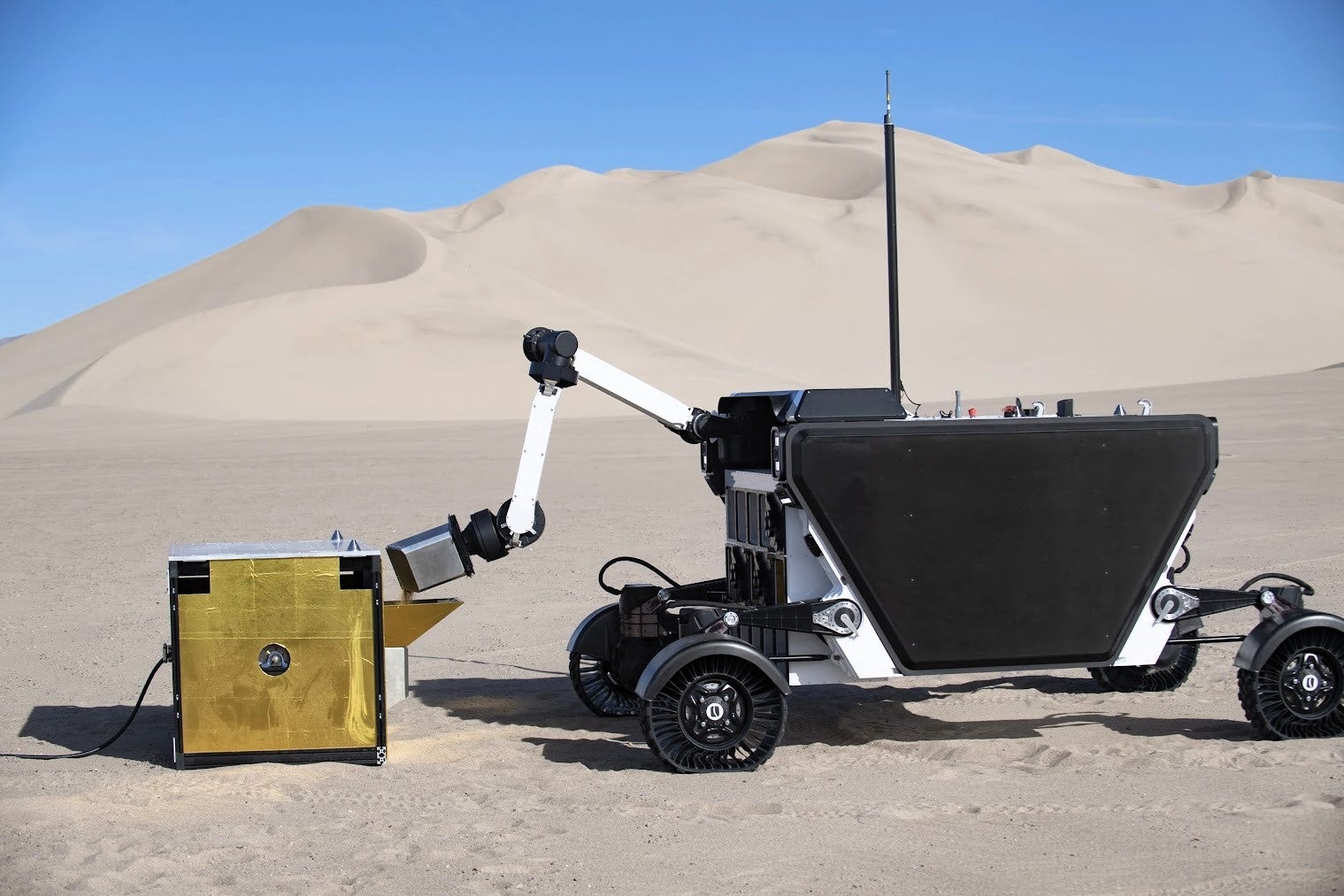Startup offers adverts on the Moon aboard lunar rover
Lunar economy predicted to be worth £120 billion by 2040

A US space startup is planning to sell advertising space on the Moon after penning a deal with a creative agency.
California-based Astrolab already has an agreement in place with SpaceX to send its jeep-sized rover to the Earth’s natural satellite aboard the next-generation Starship rocket.
The Flex moon rover could launch as early as 2026, however both the Starship rocket and the lunar vehicle are still under development.
A deal between Astrolab and the agency Group of Humans could offer brands the chance to place adverts on the lunar buggy.
“Brands can really stand out as a result of putting themselves into this situation where there is no atmosphere and limited gravity,” Rob Noble, founder of Group of Humans, told The Times.
“You’re exposing your products to all sorts of extremes that will help you learn while proving to consumers that it’s really strong.”
Astrolab claims its rover is the “largest and most capable rover to ever travel to the Moon”, capable of carrying up to 1.5 tonnes of equipment and travelling up to 24 kilometres per hour (15mph).
The startup envisions the vehicle being used to help setup a human base on the Moon, with Nasa hoping to establish a permanent lunar presence as part of its Artemis mission. Estimates from the European Space Agency suggest the lunar economy could be worth around €142 billion (£120bn) by 2040.
It is not the first company to propose placing ads in space. In 2019, soft drinks giant PepsiCo said its Russian subsidiary had agreed a partnership with the space startup StartRocket.
The idea was to use an array of micro satellites to project companies’ logos into low-Earth orbit, making them visible across vast swathes of Earth.
The proposal led to some people calling for a boycott of PepsiCo products in order to dissuade the multinational corporation from creating “space pollution”.
PepsiCo eventually dropped plans to use an orbital billboard, however the StartRocket startup still appears to be pushing forward with the idea.
Join our commenting forum
Join thought-provoking conversations, follow other Independent readers and see their replies
Comments
Bookmark popover
Removed from bookmarks